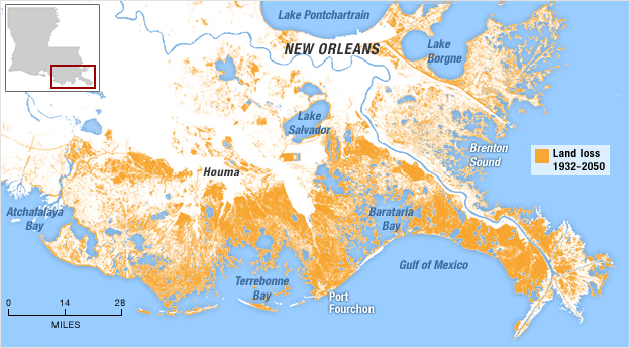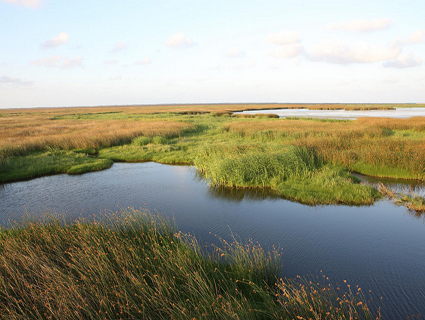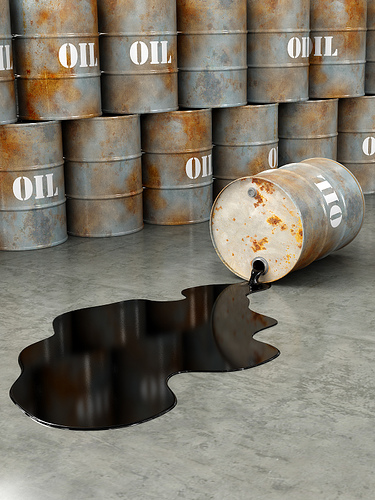
Projected erosion by 2050.Courtesy of the Louisiana Office of Coastal Activities.
The map doesn’t leave much in the way of ambiguity. Over the last century, the coasts and wetlands of South Louisiana have eroded at an alarming rate, largely due to human factors. Barring dramatic action, this isn’t expected to change any time soon—rather, it’s expected to get worse, with devastating consequences for agriculture, hurricane response, and the environment. So on Tuesday, the Southeast Louisiana Flood Protection Authority–East, a state board that was formed in the aftermath of Hurricane Katrina, took a dramatic action: It filed a lawsuit against nearly 100 oil, gas, and petrochemical companies it alleges bear collective responsibility for the sinking of South Louisiana.
“Racing to extract the region’s resources, it has created an extensive network of oil and gas access and pipeline canals that slashes the coastline at every angle,” the petition contends. “This canal network is a mercilessly efficient, continuously expanding system of ecological destruction.”
The board’s demands for the companies, which include giants like BP and Exxon, are extensive: They’d like the energy industry to essentially hit Control-Z on their past activities, including land restoration projects, re-vegetation, and reef creation. “What remains of these coastal lands is so seriously diseased that if nothing is done, it will slip into the Gulf of Mexico by the end of this century, if not sooner.”
But that leaves open the question of whether a massive lawsuit is the best way to go about stopping erosion. On Twitter, Garret Graves, the head of Louisiana’s Coastal Protection and Restoration Authority, dismissed the suit as the work of a “greedy trial lawyer” who “[h]as no business litigating coastal issues” and ignores the culpability of the Army Corps of Engineers. (Ironically, John Barry, the flood board’s vice president, authored one of the great deconstructions of the Corps’ legacy in South Louisiana.):
Here’s the lawsuit:





